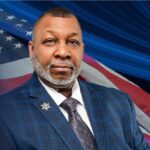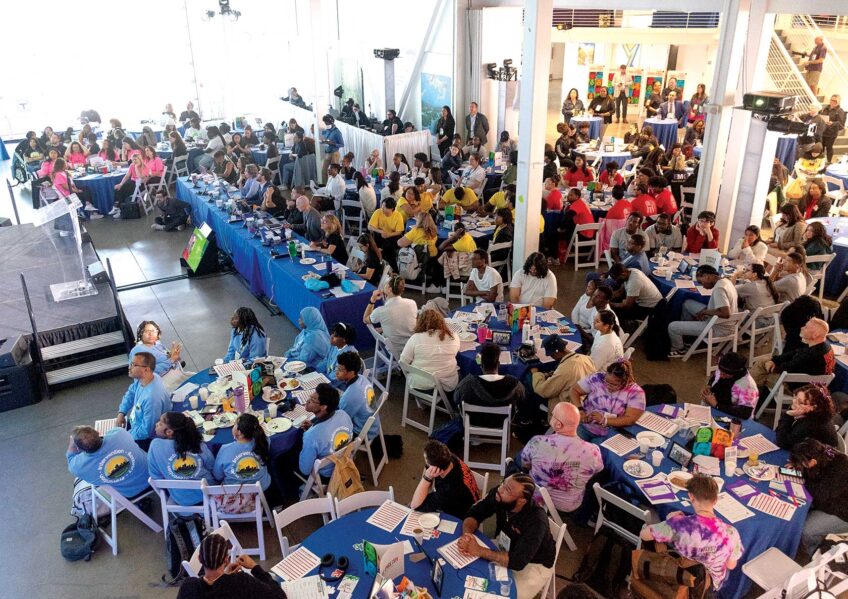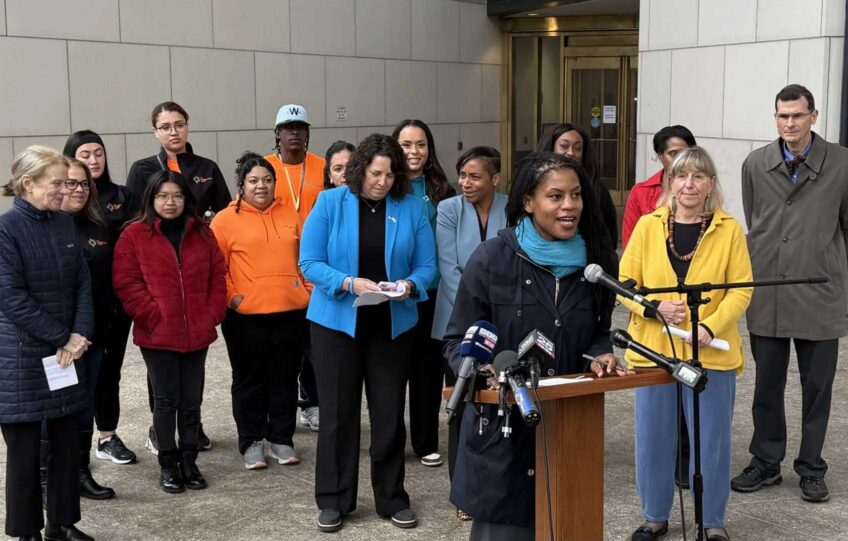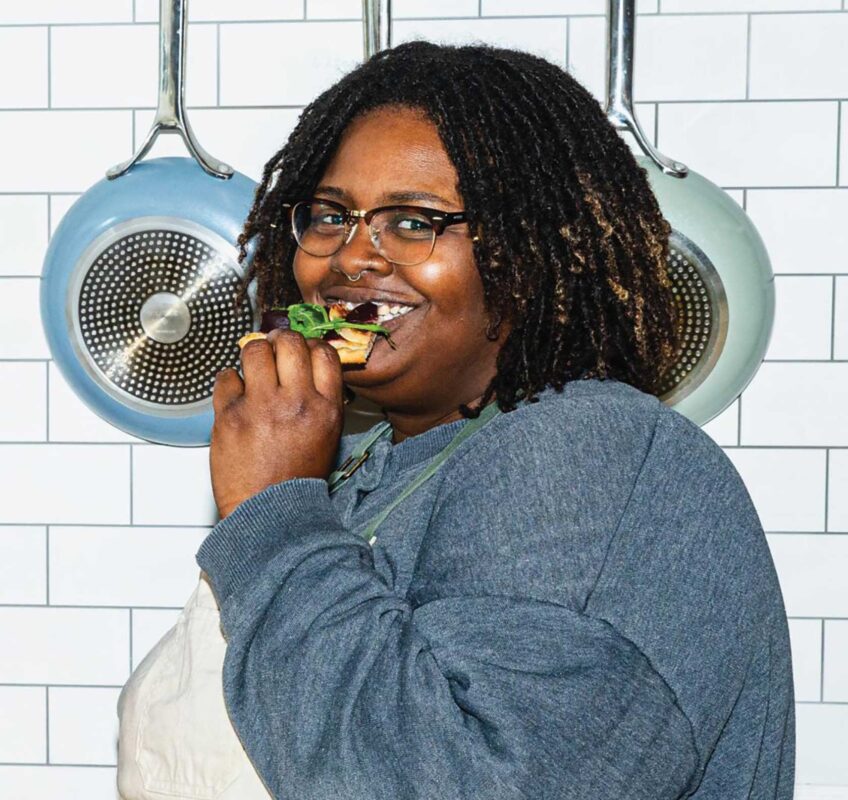Massachusetts will be among the largest prizes in the race for the Democratic presidential nomination when the state’s party endorses a candidate in its Feb. 5 primary. Gov. Deval Patrick hopes to deliver that prize to Barack Obama.
“I think these are unusual times. We have unique challenges overseas and at home … and they require not just good ideas, but the ability to unite people around big solutions,” Patrick told the Banner.
These times, Patrick said, call for a claim on the Democratic side for service and sacrifice.
“[Obama’s] the one who can make that claim, and he is interested in making that claim,” Patrick said.
Patrick endorsed the junior senator from Illinois on Oct. 18 and the two held a rally on the Boston Common a few days later in front of almost 10,000 people. He is a national co-chair of Obama’s campaign, and was active in campaigning for Obama in New Hampshire and Iowa. Patrick said he will also head to South Carolina to speak on Obama’s behalf.
Patrick is passionate about his support for Obama. In an op-ed piece published in the Jan. 5 edition of the Boston Globe, Patrick wrote that although it may not be Obama’s turn, the governor knows “in my head and in my heart that it is his time.”
“It just to me requires a much more compelling kind of leadership and a different kind of politics than we’ve had in recent times and [a different kind of politics] than we would have from any other kind of candidate,” Patrick said.
Obama is vying for the state’s endorsement along with Sen. Hillary Clinton, D-N.Y., and former Sen. John Edwards of North Carolina. Obama finished a close second in the Jan. 8 New Hampshire primary after winning the Iowa caucuses on Jan. 3.
Massachusetts will hold its primary on Feb. 5 along with 21 other states, including California, New York and Illinois.
Patrick endorsed Obama despite working as assistant attorney general for civil rights in the administration of former President Bill Clinton, the New York senator’s husband, from 1994 to 1997.
“I have tremendous respect for Senator Clinton as a senator and, as a candidate, I think she has run an almost flawless campaign,” Patrick said. But Patrick called Obama’s candidacy a “once-in-a-lifetime opportunity.”
“He’s just a cut or two above the rest of the field in leadership ability,” Patrick said.
The endorsement was not surprising, according to political consultant Michael Goldman of the Government Insight Group.
“I would argue that the only place for [Patrick] to be is with Barack Obama,” Goldman said, noting that Obama made two visits to Massachusetts to campaign for Patrick’s 2006 gubernatorial campaign.
Additionally, in 2006, Patrick employed political strategist David Axelrod, a current Obama campaign adviser who helped Obama in his 2004 U.S. Senate campaign. Goldman said that Axelrod has Obama using the Patrick’s message.
“A lot of the people who find him attractive find Obama attractive for the same reason: He’s an agent of change,” Goldman said.
Alan D. Solomont, one of the nation’s top Democratic fundraisers and Obama’s New England finance chair, agreed with Goldman. He said that the comparisons in the two campaigns lie within the electorate.
“There’s no question that in 2006, the message voters wanted in Massachusetts was change and [Patrick] was the change candidate,” Solomont said. “And I think similarly, in 2008, what the voters are looking for nationally is change. That’s really the significant similarity.”
Both Patrick and Obama are Harvard-educated African Americans with ties to the South Side of Chicago — Patrick grew up there, while Obama moved there at the age of 22 to take a job as a community organizer. Patrick ran his gubernatorial campaign on a message of hope and change — the same keystones of Obama’s presidential campaign.
Both men have crafted campaigns they call movements that belong to the voters.
Patrick noted in his victory speech upon winning the Democratic nomination for governor in Sept. 2006:
“I’ve asked you to see this not as my campaign, but as yours. Not just my chance to be governor, but your chance, our chance to reclaim our civic and political future, and that’s why tonight’s victory is yours. It’s yours.”
Similarly, Obama said after the New Hampshire primary:
“But the reason our campaign has always been different is because it’s
not just about what I will do as president, it’s also about what you, the people who love this country, can do to change it. That’s why tonight belongs to you.”
Patrick downplayed the similarities in message between the two campaigns.
“We share a similar political philosophy,” Patrick said. “We believe it is important to invite people back into the process, and in as personal a way as possible.”
Patrick said that both he and Obama have a common goal to “re-knit the community.”
“Because without that, nobody’s good ideas — not mine or Senator Obama’s — are going to get very far, especially the big ideas that we need to address the big challenges,” he said.
Patrick said that Obama’s attempt to run a campaign uniting Democrats, Republicans and independents can succeed.
“What I want is someone who is really going to be about long-term and lasting, meaningful change,” Patrick said. “That’s what we’re trying to do here in Massachusetts.
“[Voters] see it as the difference between yesterday and tomorrow, and we want to be about tomorrow.”
Patrick believes that Obama can win the Democratic nomination despite running as an insurgent candidate against the more established Clinton.
“It’s the establishment that will say, ‘It’s not your turn, you’re not ready, there’s others of us who have been around longer,’” Patrick said. “We are going to have to put aside those experts — most of them self-appointed, most of them already deeply entrenched in special interests — that tell us that we can’t have what we want.”
Yet, as was evident in Clinton’s New Hampshire primary victory, the Clintonite Democrats will work hard to win the Democratic nomination.
“It serves as an important reminder that the political establishment is not giving up anything without a fight,” Patrick said. “We’re just going to have to stay focused and keep working.”






